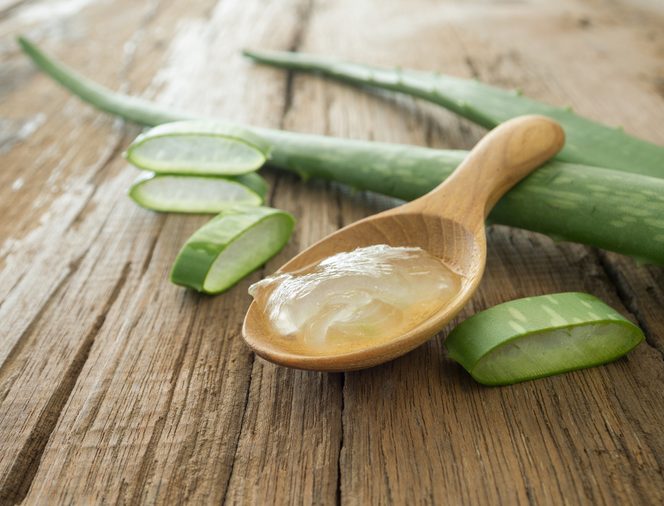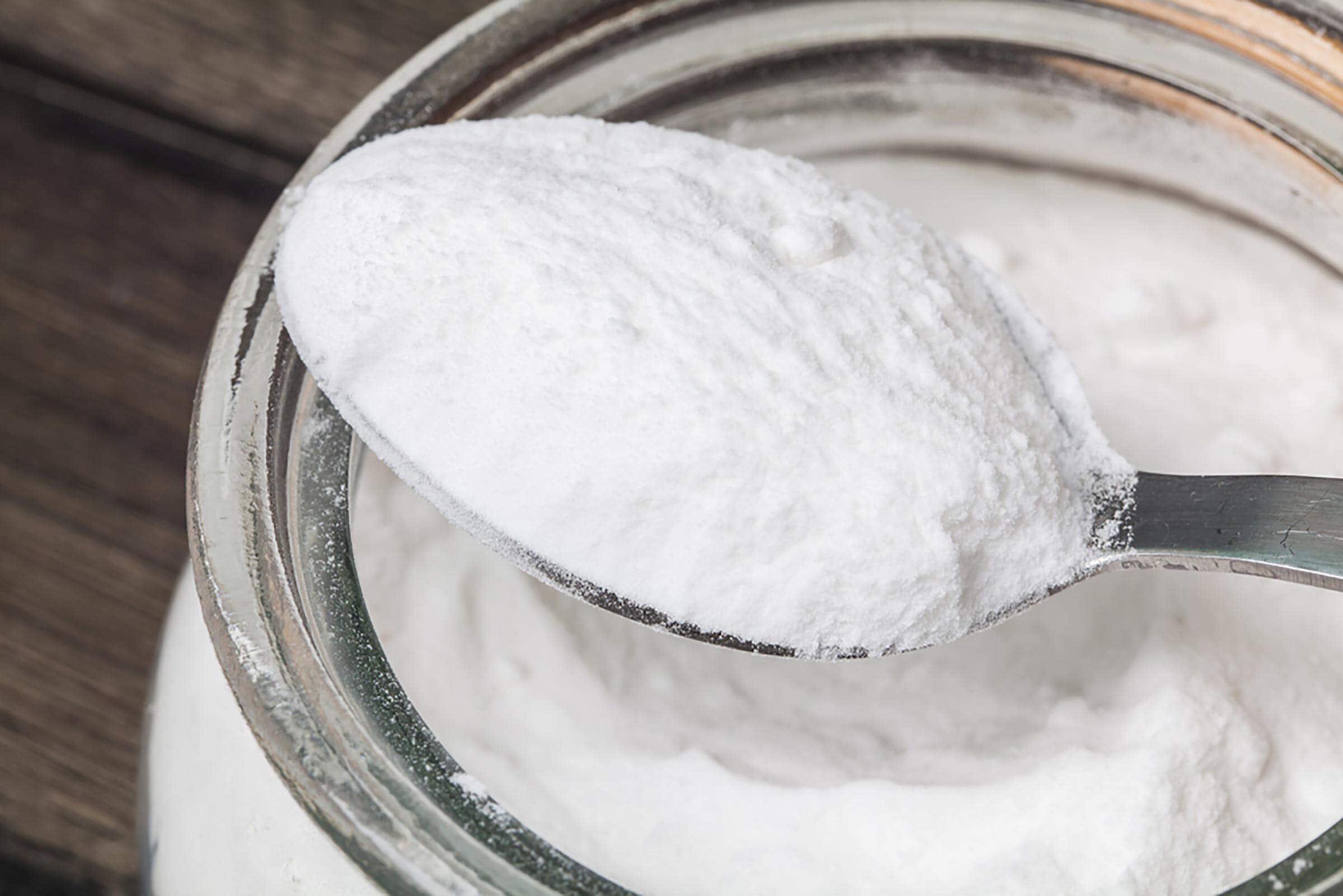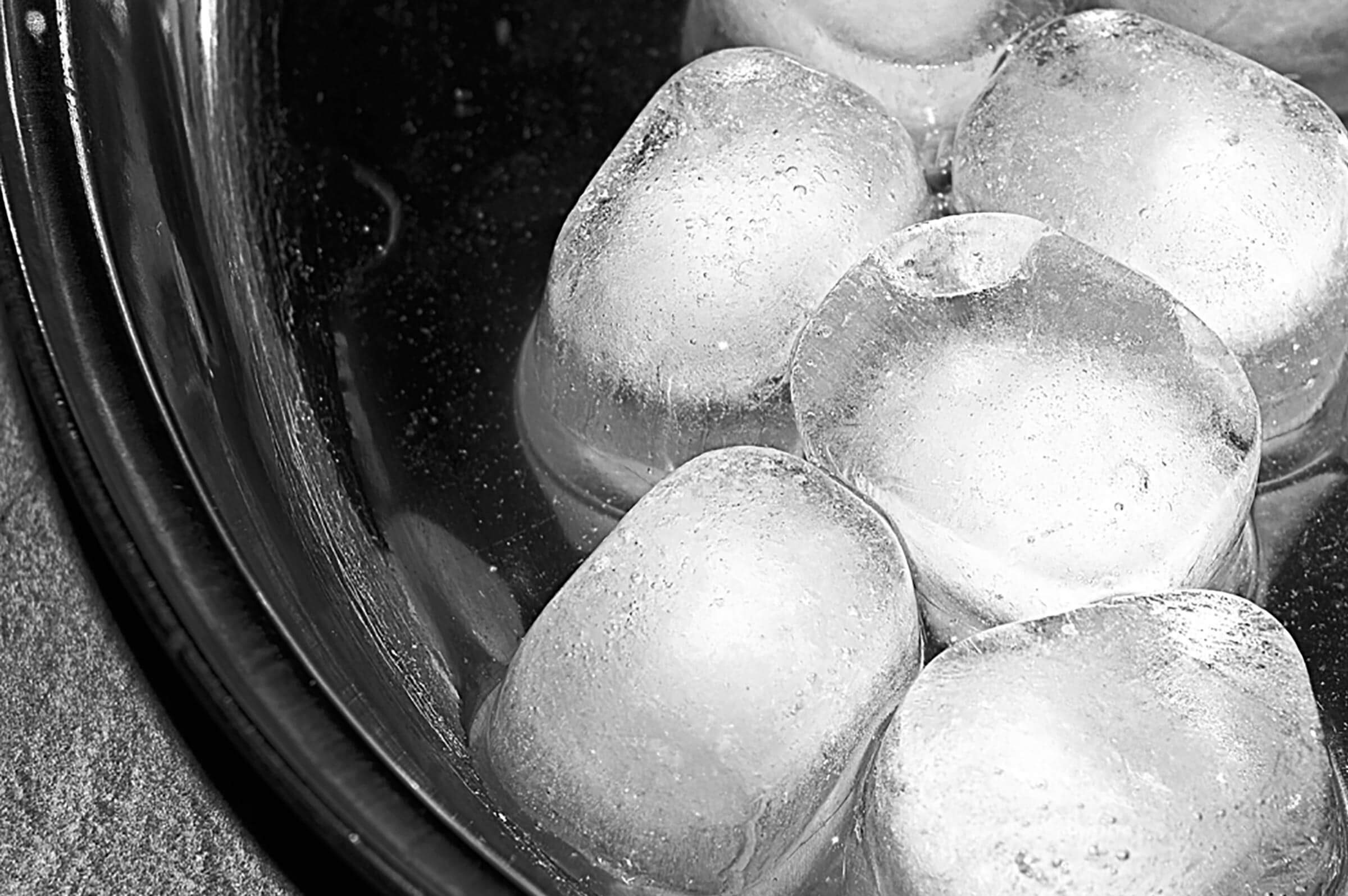
Lemons
This yellow citrus fruit offers naturally anti-inflammatory, antibacterial, and anesthetic properties that make it quite useful as a natural remedy for mosquito bites, says Joshua Zeichner, MD, director of cosmetic and clinical research for the department of dermatology at Mount Sinai Hospital in New York City. Simply cut a lemon in half and rub the inside of one of them over the bite for instant relief. Applying the juice also helps to lessen the chance of developing an infection. Just make sure to rinse the lemon juice from your skin before going back into the sun, says Dr. Zeichner. Not only is it ineffective, but applying citrus juices to the skin when it’s exposed to sunlight can result in blistering. Here are some tips that’ll help you avoid getting insect bites and stings in the first place.

Aloe vera
Aloe vera contains more than 130 active compounds and 30+ amino acids that benefit the skin. It’s also a natural antiseptic agent, which means that it’s great for relieving the itch and swelling of mosquito bites. It helps to decrease pain, itching, and swelling, in addition to speeding the healing process, says Rebecca Baxt, MD, a board-certified dermatologist with BAXT CosMedical in Paramus, New Jersey. Keep an aloe vera plant handy, break off one of the leaves, and apply the gel directly to the bite.

Baking soda
“Baking soda has anti-inflammatory benefits, which may help soothe the edge of a bug bite,” says Dr. Zeichner. Just mix a tablespoon of baking soda with only enough water to create a paste. Apply the paste to the bite, allowing it to sit for about 10 minutes, and then rinse it off. Ever wonder why you get bit so much? These are the scientific reasons some people are more attractive to mosquitoes than others.

Honey
Honey has antiseptic and anti-inflammatory properties, making it a popular pick for many natural home remedies. When it comes to soothing itchy bites, honey is a great go-to reliever, says Dr. Zeichner. Place a drop on a mosquito bite to enjoy almost instant relief. Apply as often as needed until the itching and swelling subside.

Garlic
Garlic has antioxidant and wound-healing properties, says Dr. Zeichner, so it can reduce swelling and soothe the itch. Apply minced garlic directly onto the bite. Leave it on for several minutes to let it work its magic, and then rinse it off. These are other things mosquitoes absolutely hate.

Ice
Ice is yet another simple but effective way to achieve natural bug bite relief, according to Dr. Baxt. Cold therapy numbs nerves that trigger itching and pain so that you don’t feel either one. The cold temperature helps to limit the inflammatory substances to the site of the bite too, which lessens swelling, providing immediate relief. Hold a bag of frozen veggies, ice wrapped in a washcloth, or an ice pack on the affected area for about 15 minutes.

Apple cider vinegar
Apple cider vinegar is a common natural remedy for many different problems, including natural bug bite relief, says Dr. Zeichner. It contains both anti-inflammatory and antibacterial properties that make it an excellent solution for disinfecting and soothing mosquito bites. If you have bites all over your body, you might want to add two to three cups of apple cider vinegar to a tub of warm water and soak for at least 10 to 15 minutes. If you’ve only got a few, simply soak a cotton ball in the vinegar and dab it onto the bites. Next, learn how to identify the most common types of bug bites you might get this summer.
